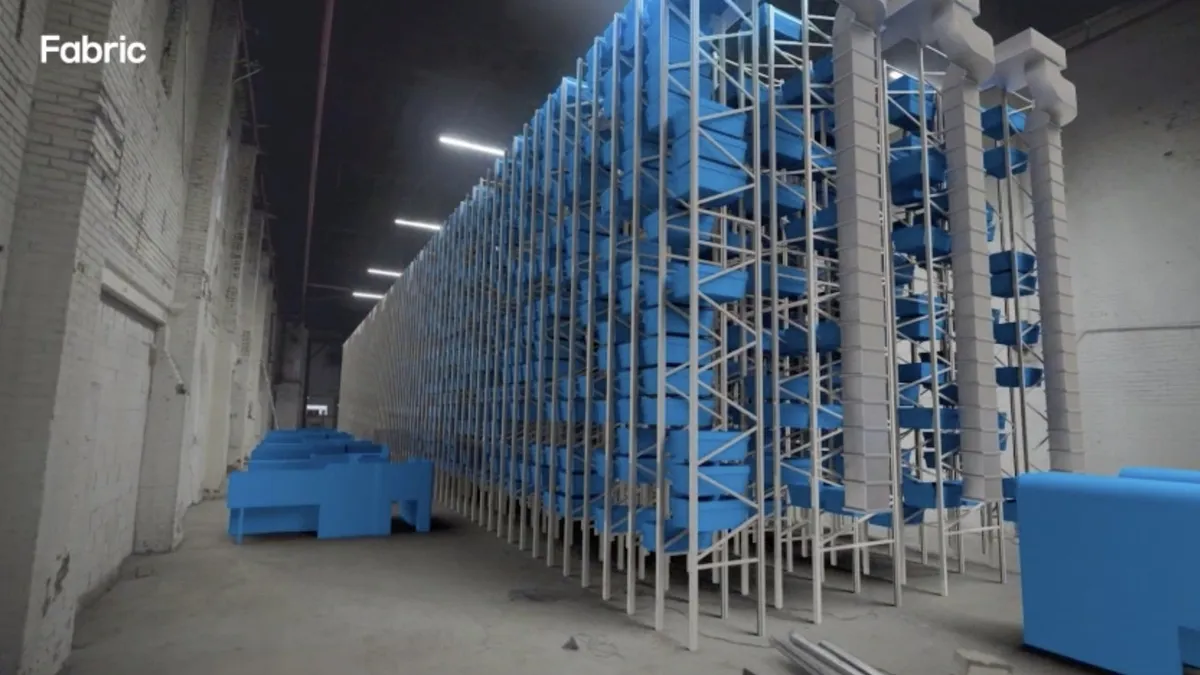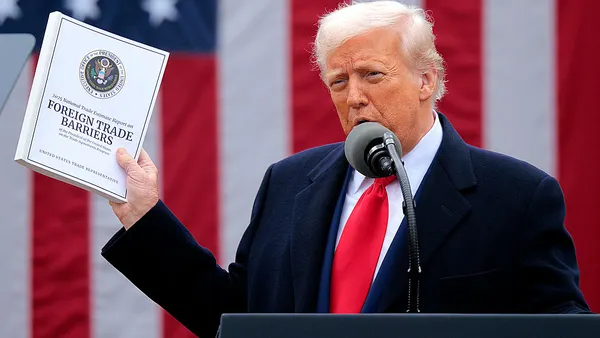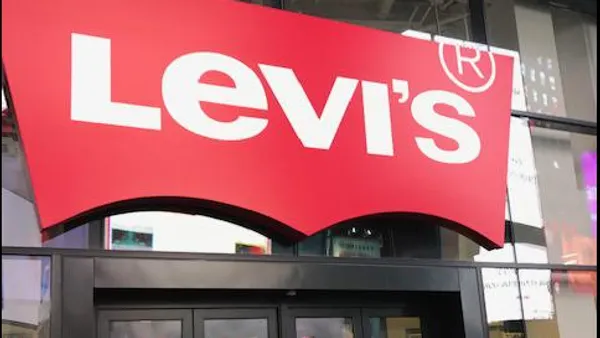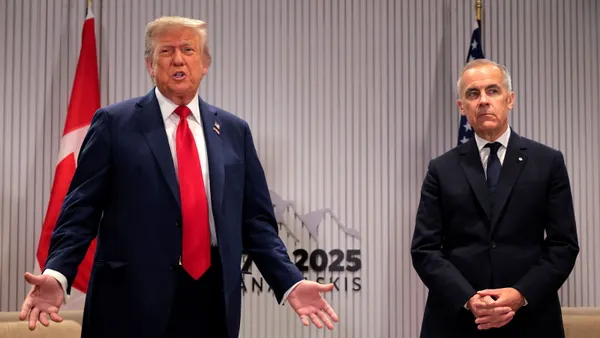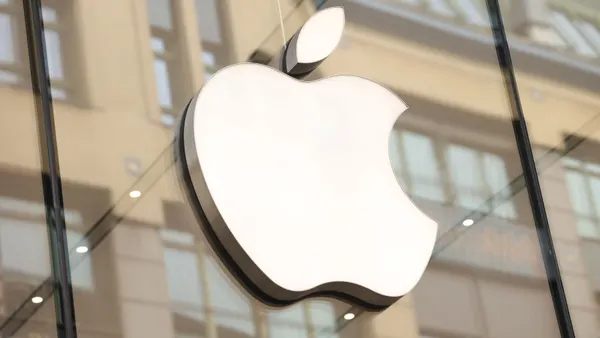Dive Brief:
- Micro-fulfillment technology company Fabric has closed a $200 million Series C financing round at a valuation of more than $1 billion, according to a Tuesday press release.
- The company, which has raised $336 million since it was founded, plans to use the funds to build facilities in cities across the United States and expand its technology, commercial and operations groups in the U.S. and Israel.
- Fabric is attracting additional investment capital as grocers continue deploying micro-fulfillment technology amid a push by the sector to beef up its e-commerce capabilities.
Dive Insight:
In announcing its latest round of funding, Fabric pointed to a shortage of fulfillment capacity as a reason why conditions are ripe for the widespread adoption of its automated order-management facilities by retailers.
Fabric provides automated MFC technology for grocers and general merchandise retailers. Rapidly growing demand for online shopping has combined with rising expectations among consumers for ever-faster delivery speeds to pose a "prohibitively expensive and challenging proposition for retailers," the company said in a press release.
Citing figures released last month by management consulting firm McKinsey, Fabric said e-commerce penetration had doubled in 2020, adding that it expects the same-day delivery market to surge during the next few years. That demand, along with a persistent labor shortage that has placed heavy pressure on the grocery industry's ability to attract and retain workers, present a strong case for facilities that mechanize the order-fulfillment process, Fabric said.
Fabric, which employs more than 300 workers in New York City, Atlanta and Tel Aviv, Israel, has made significant progress in its efforts to spread its MFC technology in the grocery industry. In July, Fabric announced a partnership with Instacart to offer MFC services to grocers and also has deals to provide its technology to Walmart, Ahold Delhaize-owned e-grocer FreshDirect and Israeli supermarket operator Rami Levy.
Even as it looks to scale its operations, however, Fabric faces significant headwinds. Competing MFC specialists like Takeoff Technologies and AutoStore have also made inroads with grocers, while Kroger announced recently that it is working with Ocado to build smaller-scale automated fulfillment facilities to augment the large robotic warehouses the companies are developing together.
In addition, industry observers have raised questions about the economic viability of MFC technology, noting that the use case for automated fulfillment technology isn't a slam dunk, in part because of the costs and complexity involved with deploying and maintaining the equipment.
In a sign that the MFC sector remains in flux, Ahold Delhaize is hedging its bets on MFC providers. Despite the Dutch grocery chain's existing partnership with Fabric with FreshDirect in the Washington, D.C., area, Ahold Delhaize's Peapod Digital Labs unit announced in February that it was using technology from AutoStore as the foundation for an automated fulfillment center in Philadelphia for The Giant Company.



